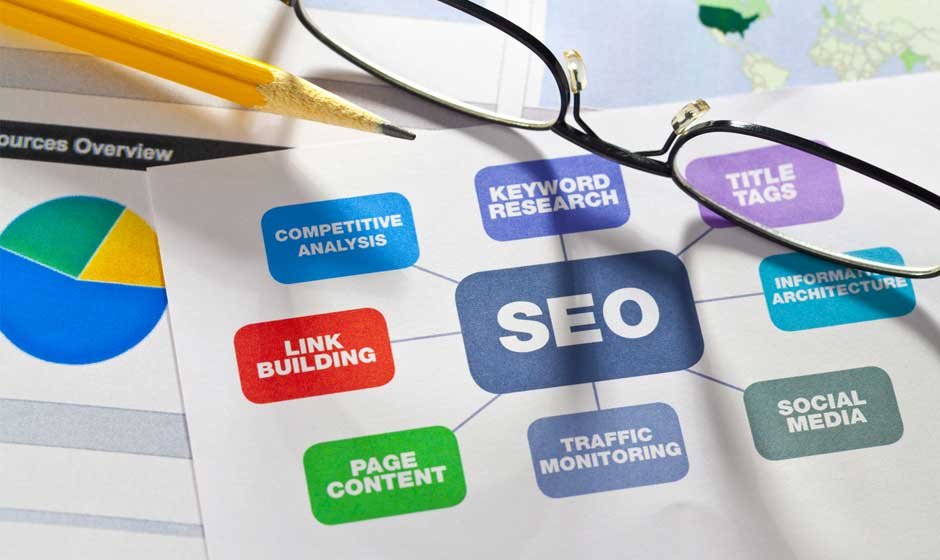Why SEO Sustainability Matters for Enterprise-Level Businesses
Sustainability in search engine optimization (SEO) goes beyond short-term rankings and quick wins—it’s about creating a long-lasting digital presence that adapts to evolving algorithms, consumer behavior, and market dynamics. For enterprise-level businesses, the stakes are even higher, as their visibility impacts brand reputation, customer acquisition, and revenue growth on a global scale. A sustainable SEO strategy prioritizes high-quality content, technical performance, and user experience, ensuring efforts remain effective and resilient.
Large organizations need tailored approaches to scale across multiple markets, product lines, and digital platforms to achieve this. This is where enterprise SEO services play a critical role, offering the expertise and infrastructure to manage complex strategies efficiently. From optimizing site architecture and implementing advanced analytics to coordinating global campaigns, these services ensure businesses remain competitive without sacrificing long-term stability. By investing in sustainable SEO practices, enterprises drive consistent traffic and future-proof their digital growth.
Core Pillars for Sustaining Enterprise SEO Growth
Consistent Technical Site Health
Large websites need regular audits to catch issues like duplicate content, broken links, missing meta tags, or redirects, which can harm search visibility and user experience. Regular checks, including page speed and crawl errors, help search engines index content and improve user experience. Automated monitoring and scheduled audits enable teams to fix minor problems early and identify infrastructure issues before they worsen.
Unified Content Strategies
Maintaining a consistent brand voice and keyword strategy across departments is a challenge at the enterprise level. Marketing, product, sales, and IT influence SEO uniquely, risking mixed messaging or content duplication. Centralized guidelines, shared editorial calendars, and interdepartmental workflows support quality content that meets user and company needs. An agile, coordinated approach ensures relevance and authority as search intent evolves with voice, video, and personalization.
Scalable Link Building
Building a backlink profile for enterprise businesses isn’t just about volume but earning links that reinforce thought leadership, relevance, and trustworthiness over time. Scalable link-building strategies should be rooted in digital PR, expert guest posting, partnerships with industry publishers, and creating original research or resources others want to reference. By focusing on quality over quantity, organizations reduce the risk of penalties and ensure their backlinks support sustainable ranking improvements.
SEO Analytics and Data Platforms
Adopting strong analytics platforms helps teams monitor traffic, technical issues, and performance through centralized dashboards and data pipelines. From executives to content creators, stakeholders can track real-time data, identify optimization opportunities, and detect negative trends. Modern tools connect SEO activity to business KPIs, forecast growth, and prioritize initiatives based on data. Organizations with scalable data infrastructure can better demonstrate ROI and secure future investment.
Creating Cross-Department SEO Alignment
Alignment between marketing, product, engineering, and analytics teams is one of the most overlooked factors in sustainable SEO success. When these teams work in silos, inconsistencies and missed opportunities abound. Regular communication and collaboration ensure SEO best practices are considered during website development, content planning, and product updates. Establishing shared goals, meeting cadences, and collaborative processes makes SEO a collective responsibility—reducing friction and accelerating organizational implementation.
Refreshing Enterprise Content to Meet Evolving Search Demands
The search is dynamic, and so is the intent of the user. Content that once ranked highly can quickly become outdated or irrelevant as business goals shift, competitors launch new campaigns, or search algorithms evolve. What worked last year may fail this year if the content contains outdated references, obsolete data, or information targeting a no-longer-relevant searcher. Enterprise teams need systematic approaches for content refreshes, including updating metadata, replacing old statistics, improving internal linking, and adapting to new keywords that align with shifting user needs. Periodic content audits identify aging assets, track performance drops, and flag opportunities for expansion or revision—helping businesses maintain evergreen authority in core areas. Building ongoing content audit workflows into your calendar keeps high-value page rankings and ensures enterprise websites remain trustworthy in the eyes of both users and search engines.
Technical Health: Automation and Audits at Scale
Scale is both a blessing and a curse for enterprise organizations. Large sites can gain wide visibility and dominate search results, but minor technical errors can be amplified across thousands of pages, potentially leading to sitewide SEO problems. Automation tools, including enterprise-grade crawlers and monitoring scripts, facilitate frequent, comprehensive audits that catch everything from broken links and duplicate content to canonicalization mistakes and improper site structure. Automated solutions empower teams to respond quickly before issues erode rankings or user trust. By regularly documenting technical audits and tracking issue resolution over time, organizations can be confident that their digital infrastructure supports ambitious SEO strategies at every growth stage.
Data-Driven Decisions: Metrics That Matter Most for Enterprises
- Organic traffic share across business units and regions, helping determine market penetration and channel effectiveness
- Ranking trends for priority keywords, enabling proactive adjustments before competitors overtake valuable positions
- Content engagement and conversion rates, offering insights into both user intent and the effectiveness of the site experience
- Technical issue recurrence rates, which indicate whether process improvements are resulting in lasting site enhancements
Measuring what matters is essential for demonstrating the business value of SEO. Instead of generic surface-level reports, enterprises must customize analytics to isolate the metrics that map directly to their revenue and strategic outcomes. Tracking organic share versus competition, monitoring the churn rate of high-value rankings, and quantifying engagement at the content level lets teams pivot quickly and double down on what’s working. Regularly reviewing these KPIs allows SEO investments to be justified with clear, quantitative evidence.
Preparing for the Future: Search Technology and SEO Training
Artificial intelligence, machine learning, and evolving search algorithms reshape how users find information and interact with brands. For enterprises, staying current means not just following trends, but leading them—through ongoing upskilling and experimentation with new digital platforms. Ongoing SEO training and skills development empower teams to leverage advanced technologies, refine their strategies, anticipate algorithm changes, and mitigate threats posed by disruptive shifts in the industry. Investing in professional development and cultivating a culture of continuous learning ensures staff remain adaptable and resilient, positioning organizations on the cutting edge of the search landscape.
Conclusion: Action Steps for Building Resilience in SEO
- Audit internal workflows for SEO knowledge or collaboration gaps, ensuring all teams are aligned and equipped to contribute to growth.
- Implement routine technical and content reviews at scale to maintain site health, refresh outdated content, and ensure compliance with SEO best practices.
- Invest in training to stay current on new search trends and algorithm updates, building a culture of ongoing improvement and experimentation.
- Pursue data-driven experiments and learn from the results, allowing strategies to evolve and improve.
Enterprise SEO growth is a long-term commitment. By focusing on cross-team alignment, scalable technology, continuous learning, and measurable outcomes, large organizations can secure their visibility and drive sustainable success in any search climate. When maintained and regularly refined, these practices not only defend against competitive threats but also create the agility required to capitalize on new opportunities as the digital landscape evolves.





